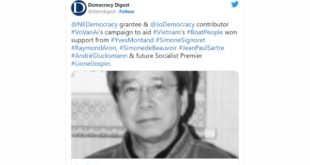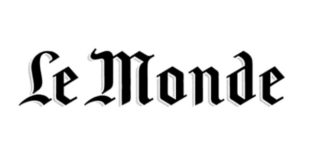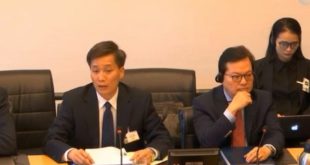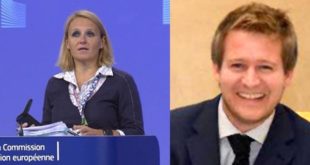HANOI, Oct 16 (AFP) – Vietnam said Thursday it has placed three senior monks from an outlawed Buddhist church under house arrest for two years for violating the country’s strict security legislation, escalating a crackdown on the group.
Foreign ministry spokesman Le Dung said their detention was not a case of “religious repression” and rejected international condemnation of the crackdown on the Unified Buddhist Church of Vietnam (UBCV).
“We would like to emphasize that the consistent policy of the Vietnamese state is always to respect the freedom of religion of its citizens,” he said in a statement. “There is absolutely no ‘religious repression’ in Vietnam but only the settlement of law violations.”
The house arrest orders against Thich Tue Sy, vice president of the UBCV’s Institute for the Dissemination of the Faith, Thich Nguyen Ly, its treasurer, and Thich Thanh Huyen, head of the church’s youth department were authorised Saturday by Le Thanh Hai, chairman of the Ho Chi Minh City People’s Committee.
Dung said the three monks were accused of “attempting to violate Article 27”, which is part of sweeping legislation frequently used by the communist regime to criminalise dissent, according to Amnesty International.
“We are very concerned by this development which is yet another example of Vietnam’s crackdown on perceived religious and political dissidents,” a spokeswoman for the London-headquartered rights group told AFP.
The three monks were accompanying UBCV patriarch, Thich Huyen Quang, and his deputy, Thich Quang Do, from the Nguyen Thieu Monastery in the central province of Binh Dinh to Ho Chi Minh City on October 8 when their vehicle was blocked by police.
After a 10-hour stand-off outside the monastery they were allowed to proceed but they were stopped again by police the following morning and taken in for questioning.
Quang, who has been under effective house arrest without charge or trial for more than two decades, was taken back to Binh Dinh. Do, a 2003 Nobel Peace Prize nominee who was released from two years of house arrest in late June, was taken to the Thanh Minh Zen Monastery in Ho Chi Minh City.
Both have been put under unofficial house arrest and their monasteries placed under round-the-clock surveillance, according to the UBCV’s Paris-based information arm, the International Buddhist Information Bureau (IBIB).
The foreign ministry spokesman, however, did not respond to written questions on their fate.
Quang, 86, and Do, 75, are Vietnam’s most prominent religious dissidents, and many analysts believe the communist regime has not put them under formal house arrest to avoid fierce diplomatic criticism.
Dung, however, repeated earlier accusations that the two Buddhist leaders have attempted to “sabotage the unified bloc of the whole people and Buddhism”. Last week he also accused them of being in possession of state secrets.
According to the IBIB, UBCV monks have suffered a wave of harassment since early last month when police heard that Quang and Do had called a special assembly on September 16-19 to reorganize the structure of the church.
Western diplomats have publicly and privately condemned this renewed crackdown against the church, which was outlawed by Hanoi in 1981 because it refused to come under Communist Party control.
On Saturday, the US State Department’s Ambassador-at-large for International Religious Freedom, John Hanford, begins a week-long fact-finding mission to Vietnam. His visit comes as Washington faces pressure at home to get tough with Hanoi over human rights.
ben/pch
 Quê Me Quê Me: Action for democracy in Vietnam & Vietnam Committee on Human Rights
Quê Me Quê Me: Action for democracy in Vietnam & Vietnam Committee on Human Rights




